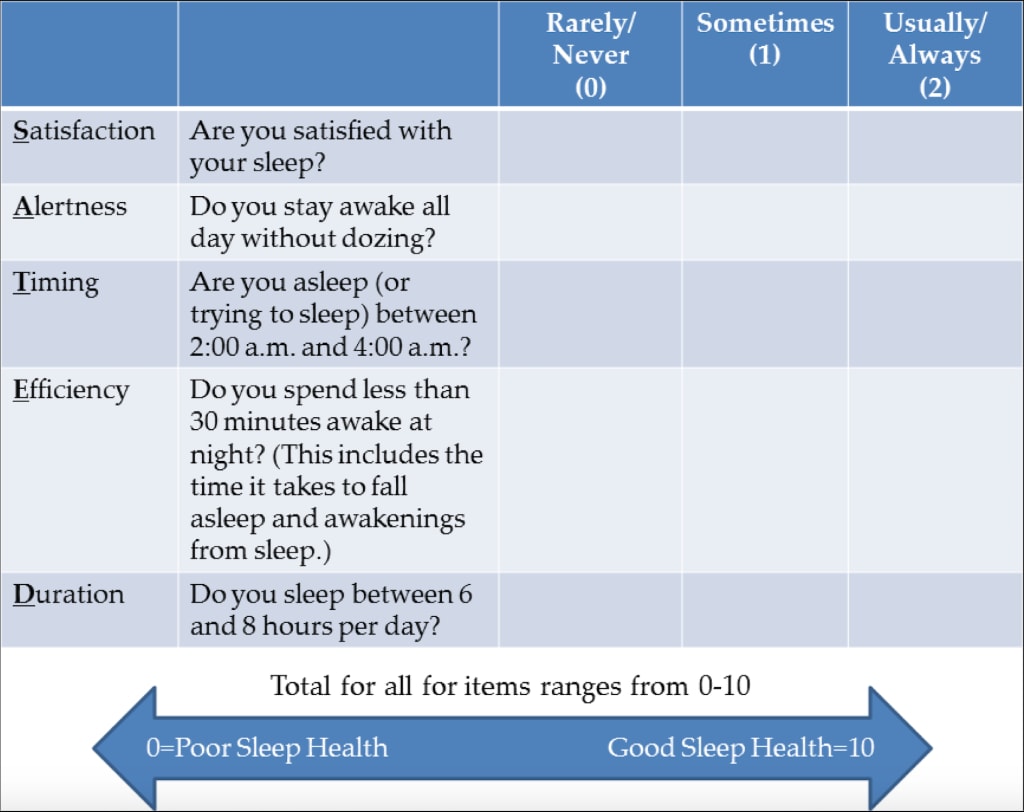Take this simple quiz to measure your sleep health.
- Do you wake up every day wishing you could go back to sleep?
- Do you find yourself zoning out, or nodding off during meetings?
- Do you need multiple cups of coffee to make it through the day?
- As you read this article, do you notice yourself reading and rereading a particular sentence or paragraph over and over?
The answers to these questions point to the quantity and quality of sleep you are getting each night.
While many movers and shakers in today’s world will contend that they need only 4-5 hours of sleep per night to be highly functional, more and more research shows that an 8-9 hour window is necessary to reap the benefits of a good night’s rest. Showing 6 hours is not enough. Anything less and you’re putting your health at risk and could even be missing out on perks like the boost in creativity and problem-solving you may accrue while dreaming.
Despite the benefits, we know that sleep provides, and the glorious feeling we all have after getting a full night of it. Though, many of us still do not dedicate adequate time to it. So, if you simply don’t want to, or for whatever reason can’t get the recommended 8+ hours of rest, how do you know if you’re routinely getting a healthy amount? Be sure to read our article, 8 Tips for a Better Night’s Sleep.

Defining Sleep Health
A group of researchers led by Daniel J. Buysse, MD from the Sleep Medicine Institute and Department of Psychiatry at the University of Pittsburgh, has developed a tool to help the general public better understand and talk about their sleep health.
What exactly is sleep health? Here is the group’s proposed definition:
A multidimensional pattern of sleep-wakefulness, adapted to individual, social, and environmental demands, that promotes physical and mental well-being. Good sleep health is characterized by subjective satisfaction, appropriate timing, adequate duration, high efficiency, and sustained alertness during waking hours.
Of course, by this definition, it is difficult to quantify–especially given that it is “adapted to individual, social, and environmental demands,” and so will vary depending on the individual and their circumstances.
Enter SATED
SATED, a self-report scale that Buysse and crew believe can help us measure sleep health. Answering SATED’s series of questions–around your Satisfaction, Alertness while awake, Timing of sleep, sleep Efficiency, and Duration –can help you determine your level of fulfillment each night. Simply total your rating in each category to get your overall sleep health score.

One of the goals these researchers had in developing SATED was to shift medicine’s focus from simply looking for ways to treat common problems like insomnia, apnea and the like, to a more holistic focus on promoting positive habits.
Creating a scale like SATED gives us a means of studying this type of specific health better. Simply introducing and defining sleep health could help people recognize any deficiencies they might have and empower them to make changes in their lives and improve their overall health in the process.